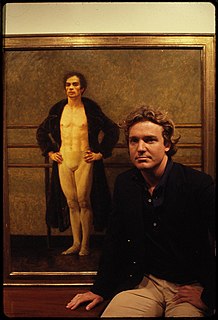Top 60 Quotes & Sayings by Jamie Wyeth
Explore popular quotes and sayings by an American artist Jamie Wyeth.
Last updated on April 14, 2025.
Painting to me is addictive. These are moments when it is inspiring, but they are few and far between. I keep my tools sharpened for the moment when things do start clicking, but that doesn't happen a lot. I really have to push myself sometimes. Painting is a profession in which it is very easy to be lazy, particularly if you have any degree of success.
























